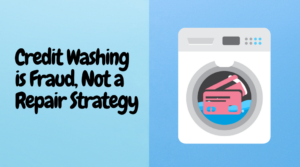Car repossession can be a stressful experience, but understanding your rights and the process can help you navigate it better.
10 Essential Facts Consumers Should Know About Car Repossession
1. You Have Rights
- Breach of Peace: Repossession agents cannot “breach the peace” when taking your car. This means they can’t use physical force, threats, intimidation or cause damage to property to take the car. The repo man also cannot enter enclosed areas, break into a locked garage or gated yard without your permission. But the repo man can remove the car from your driveway.
- Notice (Sometimes): In some states, lenders are required to give you notice before repossessing your car. This notice might outline the reason for repossession and give you a chance to catch up on payments.
2. Reasons for Repossession
- Missed Payments: The most common reason is falling behind on your car loan or lease payments. Even one missed payment can sometimes trigger repossession.
- Other Contract Violations: Failing to maintain insurance or using the car for illegal activities can also lead to repossession.
- Cross-Collateralization: If a borrower pledged a property as cross-collateralization for a vehicle loan and missed a payment, the lender could potentially seize the property.
3. The Repossession Process
- Legal Right: When you finance a car, the lender holds the title until the loan is paid off. This gives them the legal right to repossess the vehicle if you default on the loan agreement.
- Repossession Agents: Lenders typically hire third-party repossession agents to take the car.
4. Your Personal Belongings
- Right to Retrieve: You have the right to retrieve personal belongings from the repossessed car. Contact the lender or repossession agent to arrange this. So if you suspect your car might be repossessed, remove pertinent belongings prior to the event.
- Not Included: Items attached to the car, like custom rims or stereo systems, are usually not considered personal belongings.
5. After Repossession
- Notice of Sale: The lender must send you a notice of sale, informing you of when and how they plan to sell the repossessed car.
- Right to Reinstate (Sometimes): In some cases, you might have the right to reinstate the loan by paying the full amount owed, plus repossession costs, before the car is sold.
- Deficiency Balance: If the sale of the car doesn’t cover the remaining loan balance, you’ll be responsible for the “deficiency balance.”
6. Impact on Your Credit
- Negative Impact: Repossession will significantly damage your credit score.
- Length of Impact: It can stay on your credit report for up to seven years.
7. Avoiding Repossession
- Communication: If you’re facing financial difficulties, contact your lender immediately. They might be willing to work with you to avoid repossession.
- Voluntary Repossession: In some cases, voluntarily surrendering the car might be a better option than having it repossessed, as it can reduce some fees.
8. Know Your State Laws
- Variations: Repossession laws can vary from state to state. Familiarize yourself with the specific laws in your state.
9. Seek Legal Advice
- If Needed: If you believe your rights were violated during the repossession process, or if you have questions about your legal options, consult with an attorney.
10. Protect Your Financial Future
- Credit Repair: After repossession, focus on rebuilding your credit by making all payments on time and managing your debt responsibly.
By understanding these facts, you can be better prepared to handle a car repossession situation and protect your financial well-being.

















